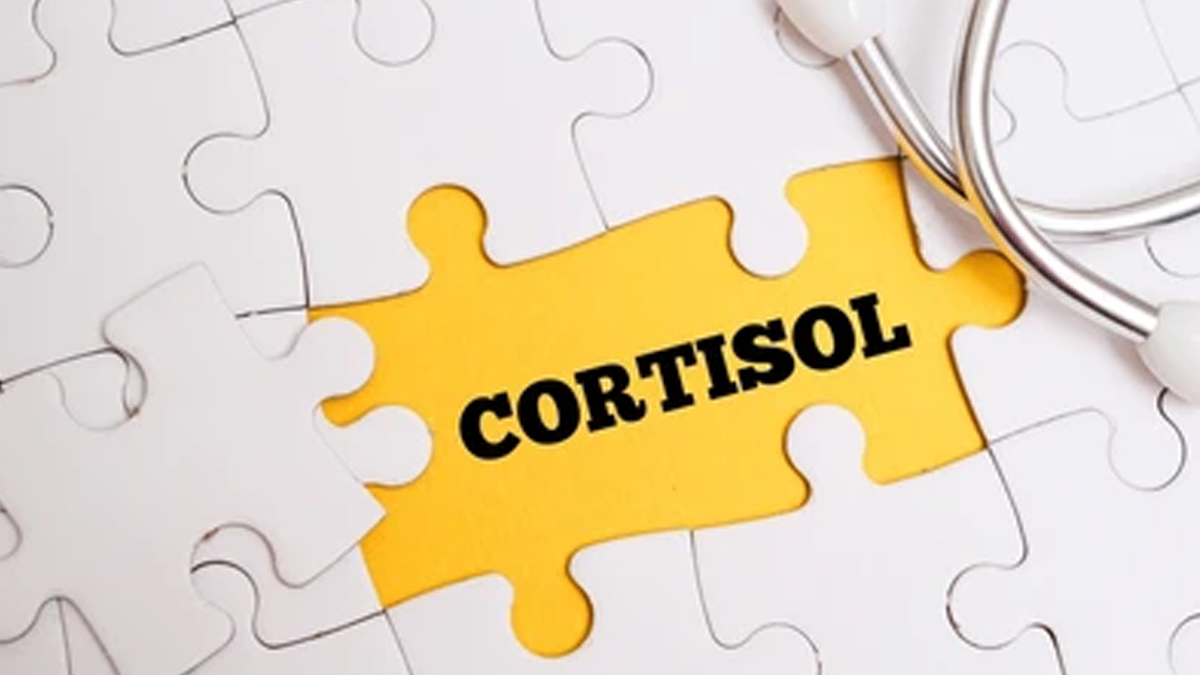
Have you ever wondered why you are dead tired all day, but when your head hits the pillow, your brain goes into overdrive? Or why do you keep waking up at 3 am, alert as if it is morning already? If you are stuck in this sleep-deprived cycle, it might be more than stress or bad luck. Your body could be dealing with high cortisol, the stress hormone that loves to crash your bedtime routine without warning.
Table of Content:-

Cortisol is your body’s primary stress hormone. It is part of your natural circadian rhythm, rising in the morning to help you wake up, and dipping at night to help you fall asleep. But when this rhythm goes off track, often due to chronic stress, overwork, or poor lifestyle habits, cortisol can stay high when it should be low, wreaking havoc on your sleep.
Sleep Patterns That Could Point to High Cortisol
1. Trouble Falling Asleep

If your body feels tired but your mind is racing, running through tomorrow’s to-do list, reliving awkward conversations, or spiraling into worry, you might be experiencing elevated nighttime cortisol. This is one of the most common patterns linked to high-stress hormone levels. Your body is still in 'go mode' when it should be winding down. According to a 2024 study, people with insomnia often exhibit higher evening cortisol levels, which can hinder the ability to initiate sleep.
2. Waking Up Between 2 am and 4 am
This is another classic red flag. You fall asleep fine, but then wake up suddenly in the early hours and can’t get back to sleep. This so-called 'cortisol rebound' often happens when cortisol spikes in the middle of the night, disrupting your rest and leaving you groggy the next day.
Also Read: Does Sleeping Less Make You Gain Weight? How Cortisol Hormone Affects the Body Fat
3. Feeling Wired at Night, But Drained During the Day

High cortisol flips your natural energy curve upside down. Instead of being alert during the day and sleepy at night, you feel sluggish in the morning and get a burst of energy just when it’s time to wind down. If your best ideas come to you after 10 pm, that’s not a productivity win, it might be cortisol interference.
4. Light, Fragmented Sleep
Even if you technically get 7–8 hours, poor sleep quality matters. If you toss and turn, wake up multiple times, or feel unrefreshed in the morning, cortisol could be the invisible culprit, keeping your nervous system on edge throughout the night.
Why Is This Happening?
Several lifestyle and emotional factors can cause chronic cortisol elevation, such as:

- Unmanaged stress (work, relationships, finances)
- Overconsumption of caffeine or alcohol
- Poor diet (high sugar or processed foods)
- Irregular sleep schedules or late-night screen time
- Overtraining or lack of recovery after workouts
Your body doesn’t always differentiate between emotional stress and physical stress, it simply reacts. And it reacts by releasing cortisol to 'protect' you, even if you’re stuck in traffic or doom-scrolling on Instagram.
Also Read: How Does Cortisol Affect Sleep? Expert Shares Insights
What Can You Do About It?
You’re not powerless. Here are a few ways to lower nighttime cortisol and get better sleep:

- Create a wind-down routine: Dim the lights, put your phone away, and do something calming like reading or journaling.
- Limit caffeine after 2 pm.
- Get exposure to morning sunlight: This helps reset your internal clock and naturally regulates cortisol.
- Try adaptogens like ashwagandha or magnesium supplements (after consulting a doctor).
- Practice deep breathing or meditation before bed to calm your nervous system.
When to Seek Help
If your sleep problems persist despite lifestyle changes, it’s worth getting your cortisol levels tested. Saliva or blood tests can give you a clear picture of what’s happening behind the scenes. A healthcare provider can guide you on treatment options, which might include stress management therapy, hormone balancing, or even addressing underlying conditions like anxiety or thyroid issues.
[Disclaimer: This article contains information for informational purposes only. Hence, we advise you to consult your professional if you are dealing with any health issue to avoid complications.]
Also watch this video
How we keep this article up to date:
We work with experts and keep a close eye on the latest in health and wellness. Whenever there is a new research or helpful information, we update our articles with accurate and useful advice.
Current Version